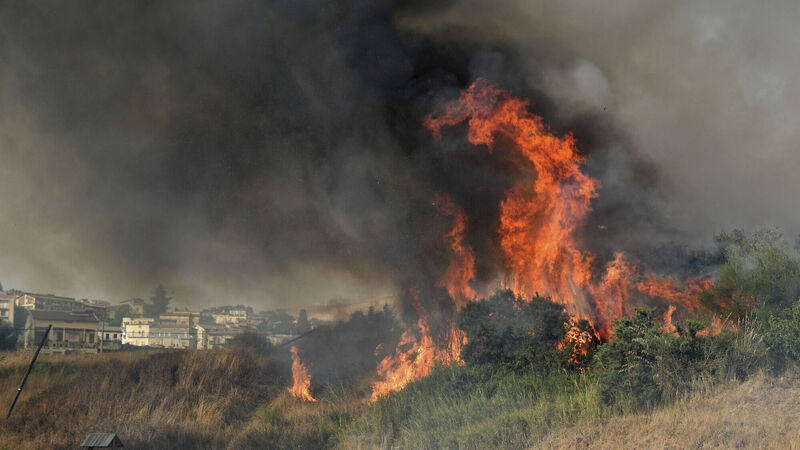Europe's summer temperatures could top 50C

Wildfires engulfing parts of Madonie near Palermo in Sicily last August. Picture: Salvatore Cavalli/AP
Temperatures in parts of Europe could top 50C in the coming years, increasing the risk of intense heatwaves, droughts, and wildfires which hit the continent last summer.
That is according to EU scientists who said the temperatures of 48.8C in Italy and 47C in Spain recorded last year could go higher given the nature of climate change and extreme weather patterns.










